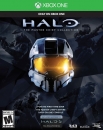Jaicee said:
Well actually, in a bid to salvage a sliver of my ego, I've just done some further math and will point out that... 1) You missed the Death Stranding review, which is the single most extreme case (-42 compared to MC!). Replacing the score for God of War (the oldest Sony title on your list) with Death Stranding's changes the average VGC score for the last 10 Sony-published and PlayStation-exclusive games from -11.1% compared to Metacritic averages to -14.9 instead, which indeed suggests Sony titles fare worse than Nintendo titles in the scoring overall these days on VGC, though granted not by a landslide margin. ...AND... 2) While 10 is a nice, round number that it's understandable to go with, the issue I've perceived here of is new, as in confined to the last two years or so, seeming to have begun at right around the time that Jim Ryan became President and CEO of Sony Computer Entertainment in April of 2019. As such, an applicable metric would exclude games released in 2018 like God of War, Detroit: Become Human, and the first Spider-Man, as I didn't see the treatment of Sony games here as being generally unfair before 2019. I also wasn't mentally including third-party releases like Persona 5 Royal, but only first-party titles. If we make these changes, the marginal difference expands quite a bit further in Nintendo's favor. Nintendo's average remains unchanged at -11.2 compared to Metacritic averages because no Nintendo games you listed are thus eliminated (indicating that Nintendo games are more often reviewed by VGC in the first place) while Sony's becomes -20.1 compared to MC scores, indicating that a fairly large and clear scoring discrepancy favoring Nintendo has indeed emerged in the last couple years, be it intentional or otherwise. So I'm not crazy after all! I'll add that I think the main reason I've perceived the gap to super massive has to do with the fact that my favorites among these have been titles that fared the worst relative to say their average scored on Metacritic. Returnal: -21 The Last of Us Part II: -23 Whereas, in contrast, I didn't even read some of the more negative reviews afforded to Nintendo games. So on top of what I've just pointed out, just the psychology resulting from this finite exposure has also been a factor in my mind magnifying and inflating the reality, making it seem even more extreme than it actually is. |
I didn't include Death Stranding because I wasn't counting console/timed exclusives that were available on PC (although I accidentally did include too human). I chose not to include PC games because first off I think they're less prone to anti-manufacturer bias (at least without considering Microsoft which gets sticky), and also because their are a lot of smaller indie games which I don't know which platforms they released on. I'm not sure what else would be added if you wanted to do it that way, aside from Shenmue which is the game I got to when I decided not to include them. For the record, Shenmue's VGC review was the same as its MC. You could include Death Stranding if you wanted, but then you get a situation where the entire difference hinges on one game that was pretty divisive. Not a great argument to show there is widespread anti-sony bias.
As for whether or not to include games beyond 2 years, we're already dealing with a fairly small sample. If you want to take out everything pre 2019 and Persona 5, we're talking about 6 games. And honestly, that feels a bit arbitrary. For that to be the case, they would have had to seen Jim Ryan take over, instantly say "fuck that guy" and start shitting on Sony games despite having no anti-Sony sentiment beforehand. I just don't see the whole review team turning on a dime because of the executive in control. Also, keep in mind, this is a mainly volunteer job that based on experience (not with this site but a couple of others) pays relatively little. If I were to become a writer for this site, and they said "take 10 points off whatever you want to give Nintendo games), I'd say fuck you and stop. Can't speak for the writers, but VGC has very little leverage. They could try subtly cultivate anti-Sony people through the hiring process, but that'd be pretty difficult.
As for Persona 5, I don't know why you wouldn't want to count that, especially if you want to count Death Stranding. Why would anti-Sony bias be limited strictly to games that are published by Sony even if they are available on Windows? Why wouldn't it extend to a game that is truly exclusive to Sony home consoles? I'd say, admittedly based on anecdotal evidence, that diehard fans (fanboys if you will) of a particular console tend to place a greater amount of emphasis on exclusive content than other third party offerings, even if not the same amount as they do for first party exclusives. I would say, again based on anecdotal evidence, that exclusivity is more important of a factor than publisher.
I feel that taking the ten most recent exclusive titles was the best way to go about things. Taking titles released after February of 2019 and not including exclusives weren't published by Sony/Nintendo feels like massaging the data. And even if it's not intentionally leading the data to the desired conclusion, it leaves us with a very small sample. It also leaves us with way more Nintendo titles, which means outliers will skew the data for Sony than they would for Nintendo. The fewer the data points, the less reliable the data. If we looked at 100 games, it would be very unlikely that Nintendo games should score significantly higher without intentional bias. With 6 games, it's pretty plausible that a couple of reviewers just didn't like a couple of games and dragged down the average with no bias.
As for why Nintendo products are reviewed more often, that's simply because there are more of them, at least over the time period in question. In 2018, (according to Wikipedia) Nintendo released 18 retail games compared to 8 for Sony. In 2019 it is 16-5 in Nintendo's favor. This would also tie into why you might perceive the gap as bigger than it is. I believe that Death Stranding was literally the only Sony retail release from 2019 that was reviewed, so if that score was low, it's going to stick out more.
At any rate, I think my methodology is pretty fair. But, even if you want to argue about whether or not a couple of games should have been included, I don't think there's nearly enough to demonstrate a calculated anti-Sony bias.











































 I'll be sure to def check out that thread!
I'll be sure to def check out that thread!